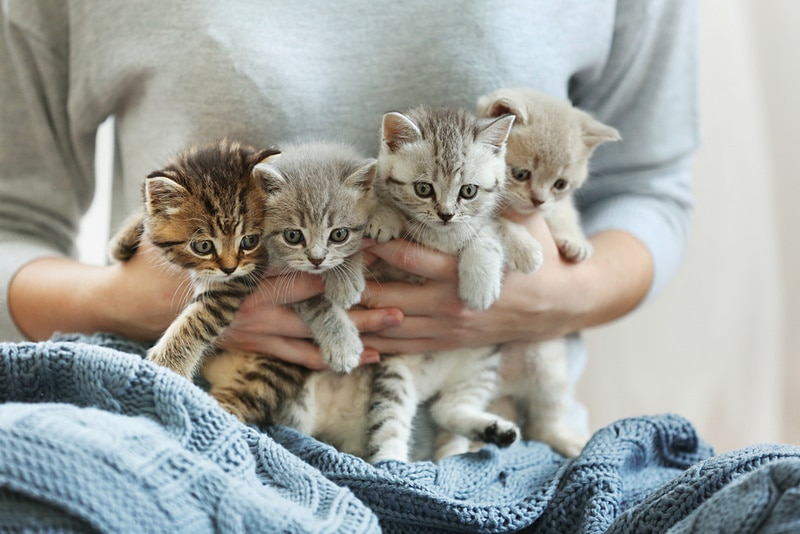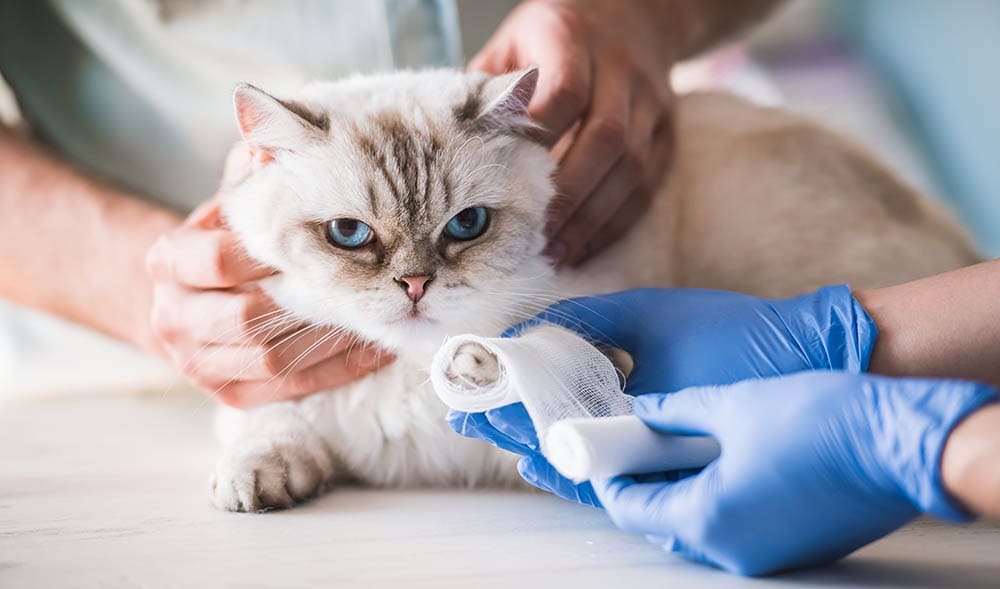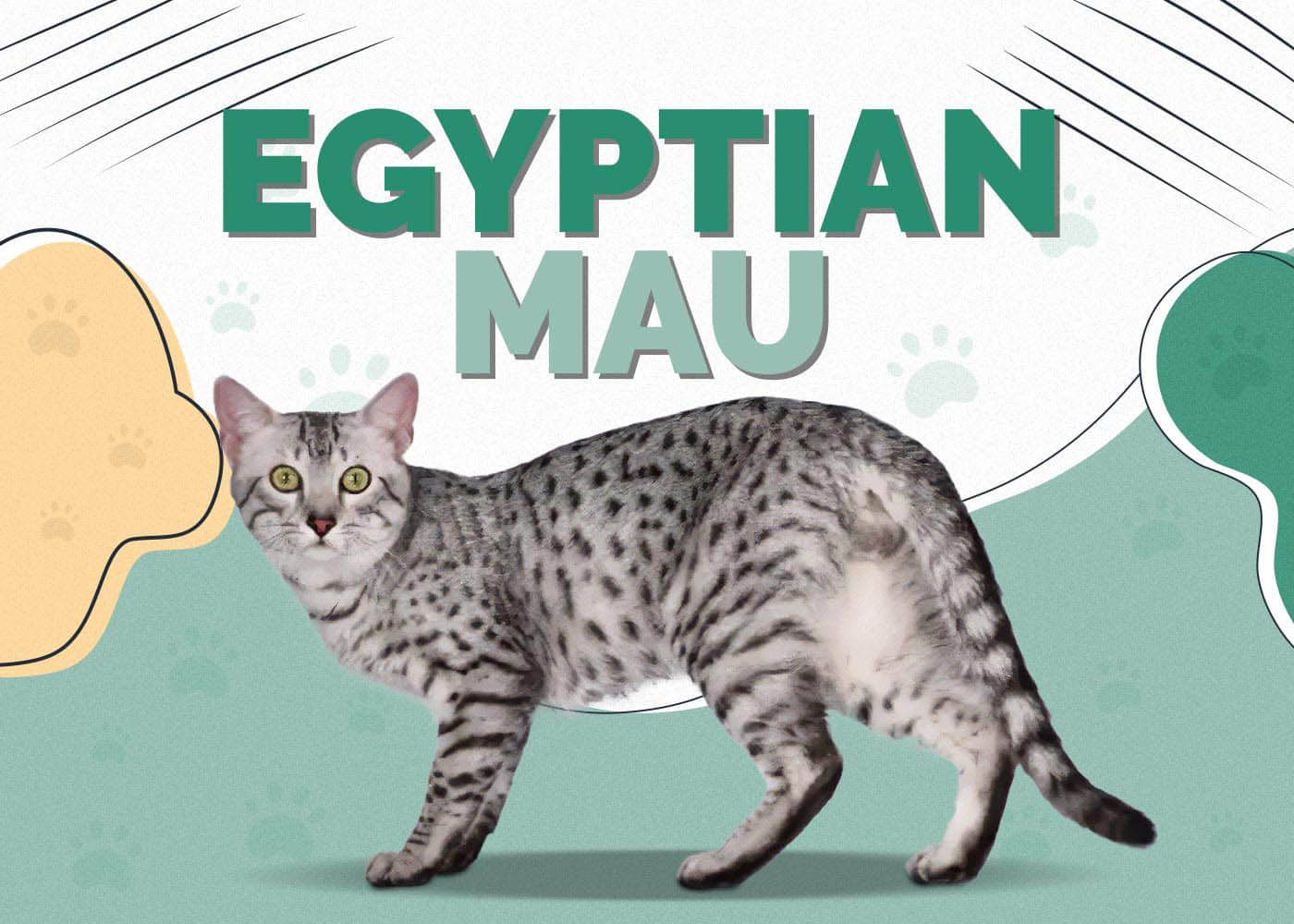Is Tea Tree Oil Toxic to Cats? Vet Approved Facts & FAQ
By Luxifa Le
Updated on

Melaleuca oil, or tea tree oil, is a popular “natural remedy” for many things, including acne, athlete’s foot, and lice. It can now be found in everything from body lotions and shampoos to toothpaste and cleaning products. It has been marketed for use on dogs, cats, ferrets, and horses to treat external parasitic infections like fleas and ticks.
However, tea tree oil can be toxic for animals who ingest it. These products are heavily diluted, and concentrated tea tree oil should never be used on animals; the ASPCA has listed this as a potential toxin for cats and dogs.
What Are the Signs of Tea Tree Oil Toxicity?
Toxicity can result in low body temperature, weakness, decreased heart rate, difficulty walking, tremors, and skin irritation. Symptoms can appear within one to two hours of application but may take up to eight hours to show up.
Tea tree oil is highly toxic to cats, and a fatal dose of tea tree oil in cats is as little as 0.8 milliliters per pound. Contact your veterinarian immediately if you suspect that your cat has ingested tea tree oil. Your veterinarian will be able to determine whether your cat needs to be brought in for examination and observation.
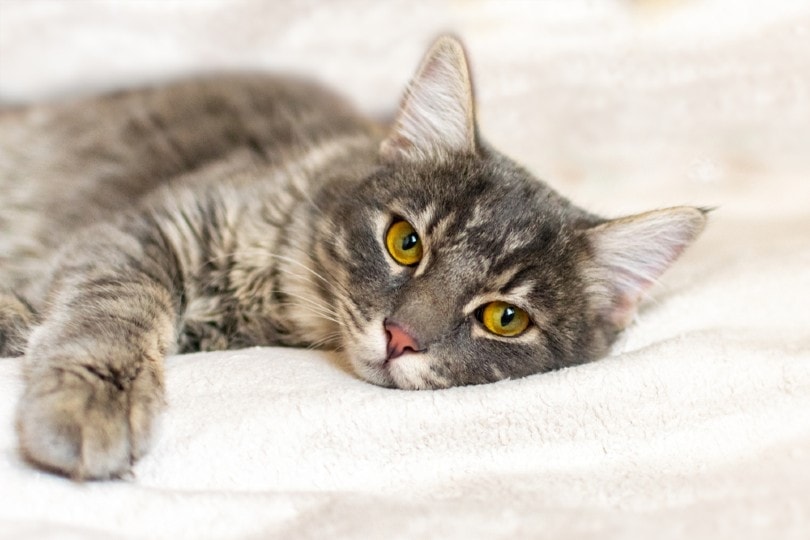
How Much Tea Tree Oil Is Toxic for Cats?
The minimum toxicity threshold for tea tree oil is unknown in cats. Thus, if your cat has been exposed to tea tree oil, you should immediately report it to your vet. Doses ranging from 0.8–1.1 milliliters per pound have been designated potentially fatal.
Toxicity is most common in cats when 100% tea tree oil is used. Doses as tiny as seven to eight drops on the skin may be fatal. Products with diluted or low concentrations of tea tree oil are generally not considered toxic, but exposure to these substances should still be reported to the animal’s veterinarian.
As a general rule, cats weigh between one and ten pounds.
What Are Essential Oils?
Essential oils, contrary to what many people believe they are, are not oils that are essential for our bodies’ functioning. They are the concentrated essence of a plant known for its aromatic or medicinal properties. These oils are diffused or applied to the skin during a massage, and when inhaled, the scent molecules travel to the olfactory nerve and directly stimulate the brain.
Essential oils can impact the amygdala, the emotional center of the brain. For instance, peppermint is often used to wake people up in the morning because its sharp, fantastic scent invigorates the brain and body.
However, just like many plants are toxic to cats, so are the essences of many plants. According to the Pet Poison Helpline, the following essential oils are toxic to cats, even in small amounts.
- Bergamot
- Cinnamon
- Clove
- Eucalyptus
- European pennyroyal
- Geranium
- Lavender
- Lemon, lime, and orange
- Lemongrass
- Rose
- Rosemary
- Sandalwood
- Tea tree
- Thyme
- Wintergreen, peppermint, spearmint, and mint
- Ylang-ylang
Are Essential Oils Safe for Cats?
Essential oils are prevalent right now with the alternative medicine crowd. They’re being advertised for use for everything from personal products and home cleaning to medical treatment. They’re even starting to appear in pet products aimed at eco-conscious people. But are these oils safe for use on cats?

Are Any Essential Oils Safe for Cats?
No, there are no essential oils safe for cats. They all have the potential to be toxic, even fatal to your cat. In their concentrated form (100%), essential oils are dangerous to pets, including when the oil is spread on the skin, fur, or paws.
If you wish to use essential oils in a home with cats, you’ll need to take some extra precautions to minimize the risk of danger to your pet. Use diffusers instead of concentrates to lower the risk of toxicity. It’s best to use a diffuser in an open space and keep the cat away from the diffuser and its cord.
Remember that the diffused oil droplets can still land on your cat and be ingested during grooming. Place the diffuser in a low traffic area and dilute the diffuser oil appropriately.
When Should I Call the Vet for Essential Oil Toxicity?
You’ll want to get your cat to the emergency vet if your cat starts to show any signs of difficulty breathing, coughing, wheezing, drooling, vomiting, tremors, wobbliness, or low heart rate. Contact your veterinarian if you suspect your cat has ingested an essential oil. Your vet will be able to guide you and help you make the best choices for your cat’s continued wellbeing.
If a product has caused health problems for your cat before, it’s best to discontinue its use in your home. While it’s essential to consider the appearance and smell of our homes and spaces, it’s not worth accidentally killing a beloved pet. Find a different oil to diffuse if the one you’re using has adverse effects on your pet.
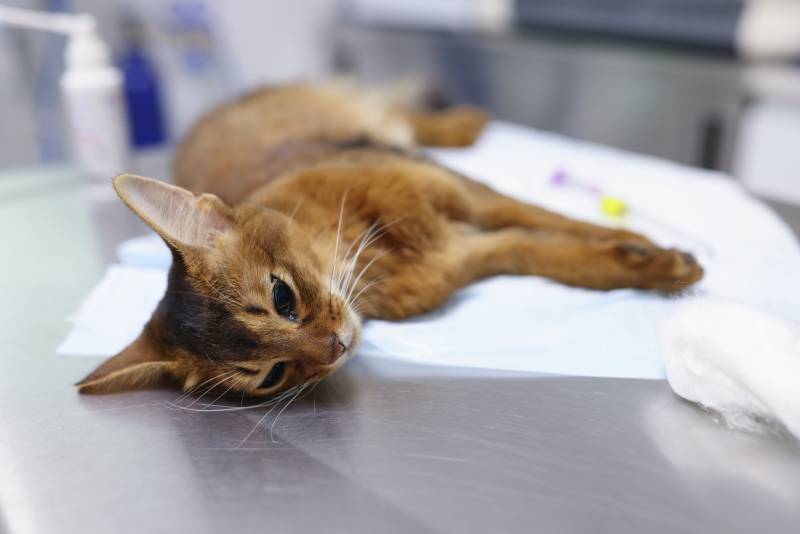
Final Thoughts
Tea tree oil and other essential oils are toxic for cats, but that doesn’t mean you have to live in a smelly home. There are many cat-safe ways to reduce the smells in your home without masking them using an oil diffuser. While it’s a shame that these delightful things we love aren’t always safe for our pets, we can build a space just as beautiful with safe stuff for your furry family members.
Again, if you suspect that your cat has ingested tea tree oil or any other essential oil, please immediately contact your veterinarian. Tea tree and other essential oils are toxic to cats, even in tiny amounts, and a veterinarian will be able to guide you in making the best decisions for your cat’s health. Don’t delay contacting your veterinarian. It’s better safe than sorry.
Featured Image Credit: ronstik, Shutterstock


